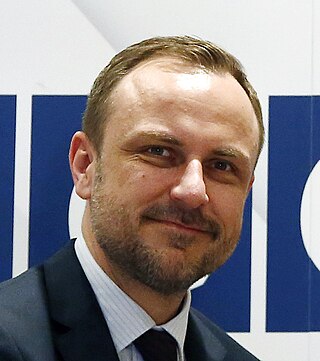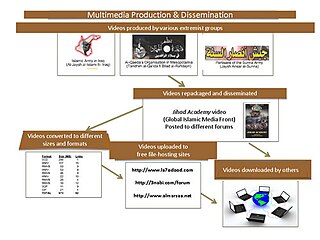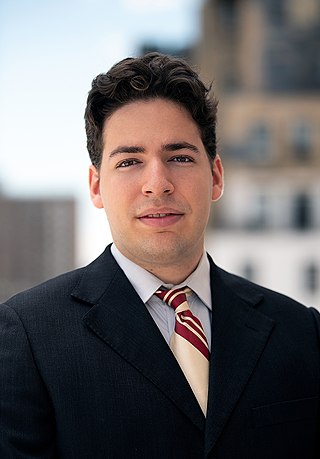Islamic terrorism refers to terrorist acts with religious motivations carried out by fundamentalist militant Islamists and Islamic extremists.

John G. Horgan is a Distinguished University Professor of Psychology at Georgia State University in Atlanta, Georgia. He studies involvement and engagement with terrorism, with a focus on disengagement and deradicalisation from terrorist movements. He has been described by the European Eye on Radicalization research group as the "world’s most distinguished expert in the psychology of terrorism". Since 2019, Horgan has been leading a team of researchers funded by the U.S. Department of Homeland Security to research the incel subculture.
Jihadism is a neologism which is used in reference to "militant Islamic movements that are perceived as existentially threatening to the West" and "rooted in political Islam." It has been applied to various insurgent Islamic extremist, militant Islamist, and terrorist individuals and organizations whose ideologies are based on the Islamic notion of jihad. It has also been applied to various Islamic empires in history, such as the Umayyad Caliphate and the Ottoman Empire, who extensively campaigned against non-Muslim nations in the name of jihad.
Radicalization is the process by which an individual or a group comes to adopt increasingly radical views in opposition to a political, social, or religious status quo. The ideas of society at large shape the outcomes of radicalization; for example, radical movements can originate from a broad social consensus against progressive changes in society or from a broad desire for change in society. Radicalization can result in both violent and nonviolent action – academic literature focuses on radicalization into violent extremism (RVE) or radicalisation leading to acts of terrorism. Multiple separate pathways can promote the process of radicalization, which can be independent but are usually mutually reinforcing.
The International Centre for the Study of Radicalisation and Political Violence (ICSR) is a non-profit, non-governmental think tank based in the Department of War Studies at King’s College London whose mission is to educate the public and help policymakers and practitioners find solutions to radicalisation and political violence. It obtains some of its funding through the European Union.

In Internet culture, the 1% rule is a general rule of thumb pertaining to participation in an internet community, stating that only 1% of the users of a website actively create new content, while the other 99% of the participants only lurk. Variants include the 1–9–90 rule, which states that in a collaborative website such as a wiki, 90% of the participants of a community only consume content, 9% of the participants change or update content, and 1% of the participants add content.
Jytte Klausen is a Danish-born scholar of politics who teaches at Brandeis University in Waltham, Massachusetts as the Lawrence A. Wien Professor of International Cooperation in the Department of Politics. Klausen has also served as an affiliate at the Minda de Gunzburg Center for European Studies at Harvard, among other positions.

Peter R. Neumann is a German journalist and academic who frequently appears on radio and television as an expert on terrorism and political violence. He is the Founding Director of the International Centre for the Study of Radicalisation and Political Violence as well as Professor of Security Studies at the War Studies Department of King's College London.
A "jihobbyist" is a term coined by Jarret Brachman that denotes a person who is not an active member of a violent jihadist organization such as Al-Qaeda or the Somali Al-Shabaab yet is receptive to jihad and radical Islam.
Lorne L. Dawson is a Canadian scholar of the sociology of religion who has written about new religious movements, the brainwashing controversy, and religion and the Internet. His work is now focused on religious terrorism and the process of radicalization, especially with regard to domestic terrorists.
Ben O'Loughlin is Professor of International Relations at Royal Holloway, University of London. He is Director of the New Political Communication Unit, which was launched in 2007. Before joining Royal Holloway in September 2006 he was a researcher on the ESRC New Security Challenges Programme. He completed a DPhil in Politics at New College, Oxford in 2005 under the supervision of the political theorist Elizabeth Frazer and journalist Godfrey Hodgson.
Islamic extremism in the United States comprises all forms of Islamic extremism occurring within the United States. Islamic extremism is an adherence to fundamentalist interpretations of Islam, potentially including the promotion of violence to achieve political goals. In the aftermath of the September 11, 2001 terror attacks, Islamic extremism became a prioritized national security concern of the U.S. government and a focus of many subsidiary security and law enforcement entities. Initially, the focus of concern was on foreign Islamic terrorist organizations, particularly al-Qaeda, but in the course of the years since the September 11 terror attacks, the focus has shifted more towards Islamic extremist and jihadist networks within the United States.
Terrorism, fear, and media are interconnected. Terrorists uses the media to advertise their attacks and or messages, and the media uses terrorism events to further aid their ratings. Both promote unwarranted propaganda that instills mass amounts of public fear. Osama Bin Laden himself spoke of this weaponization of the media in a letter after 9/11. Within that letter, Bin Laden recalled fear as the deadliest weapon. He reflected upon the way western civilization has become obsessed with mass media in that they are quick to consume what will evidently bring them fear. He also states that, we are bringing this problem on our own people by giving the media such power. In relation to one’s need for media coverage, the Jihad can be classified as an offspring of mass media. The Jihad needs to conceptualize their martyrdom by leaving behind manifestos and live videos of their attacks. In fact, it is crucially important to them that it is being covered. For there is this overall fascination with crime itself, especially terrorism. The components the media looks for to deem the news “worthy” enough to publicize are categorized into ten qualities, terrorists usually exceed half in their attacks. The following are Immediacy, Conflict, Negativity, Human Interest, Photographability, Simple Story Lines, Topicality, Exclusivity, Reliability, and Local Interest. Morality and profitability often are two motivations when delivering news, however recently news has become more motivated in making money than shielding the public from bad news.

The Global Islamic Media Front (GIMF) is an Islamist propaganda organization that is associated with the terrorist group, al-Qaeda, and other jihadist groups. The GIMF is known by the U.S. Federal Bureau of Investigation (FBI) as an "underground media" organization. The GIMF specializes in production of jihadist material for distribution. It is one of several organizations that jihadists use to spread information via the Internet, including the well-known As-Sahab. Their slogan that is used on their materials is "Observing Mujahideen News and Inspiring the Believers." There is no indication who the leader of this organization is.
Violent extremism is a form of extremism that condones and enacts violence with ideological or deliberate intent, such as religious or political violence. Violent extremist views can manifest in connection with a range of issues, including politics, religion and gender relations. Though "radicalization" is a contentious term, its general use has come to regard the process by which an individual or group adopts violence as a desirable and legitimate means of action. According to the RAND Corporation, extremism is a term used to characterize a variety of attitudes, beliefs, and behaviors that often are on the extreme end of the political, religious, or ideological spectrum within society.
Shiraz Maher is a British writer and analyst, and Director at the International Centre for the Study of Radicalisation and Political Violence (ICSR) at King's College London. He also teaches at Johns Hopkins University. The son of Pakistani immigrants, for several years after 9/11 Maher was a member of the Islamist organisation Hizb ut-Tahrir, but left the movement after the 2005 London bombings and became an outspoken critic of radical Islam. He has written for leading newspapers in Britain and elsewhere, produced reports and studies on counterterrorism strategy, and appeared in the international news media as a commentator on jihad and radicalisation.

Domestic terrorism or homegrown terrorism is a form of terrorism in which victims "within a country are targeted by a perpetrator with the same citizenship" as the victims. There are many definitions of terrorism, and none of them are universally accepted.

Islamic terrorism in Europe has been carried out by the Islamic State (ISIL) or Al-Qaeda as well as Islamist lone wolves since the late 20th century. Europol, which releases the annual EU Terrorism Situation and Trend report (TE-SAT), used the term "Islamist terrorism" in the years 2006–2010, "religiously inspired terrorism" 2011–2014, and has used "jihadist terrorism" since 2015. Europol defines jihadism as "a violent ideology exploiting traditional Islamic concepts".
Online youth radicalization is the action in which a young individual or a group of people come to adopt increasingly extreme political, social, or religious ideals and aspirations that reject, or undermine the status quo or undermine contemporary ideas and expressions of a state, which they may or may not reside in. Online youth radicalization can be both violent or non-violent.

Ido Eliyahu Levy is an American counter-terrorism expert and military analyst. Levy is an Associate Fellow at the Washington Institute for Near East Policy, where he authored the book "Soldiers of End-Times", a comprehensive analysis of the Islamic State's conventional warfare capabilities, published in December 2021.






